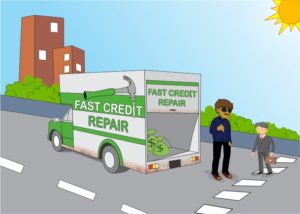 Despite all the negatives associated with credit, there are some positives too. When you manage credit responsibly, you can build up a good credit rating that will put you in a good position for car loans, a mortgage or even a business loan. If you think that having credit could benefit your finances, here are some ways you can use credit responsibly and avoid getting yourself into unnecessary debt.
Despite all the negatives associated with credit, there are some positives too. When you manage credit responsibly, you can build up a good credit rating that will put you in a good position for car loans, a mortgage or even a business loan. If you think that having credit could benefit your finances, here are some ways you can use credit responsibly and avoid getting yourself into unnecessary debt.
Choose credit with low-interest rates
The type of interest rate you’re offered for a credit card could make a difference to your finances. If your interest rate is too high, you might struggle to make the minimum payments. High-interest also raises the question of why you’d have a card at all – you could end up paying much more for goods than you anticipated. Before making an application for a loan or credit card, do a bit of research first – reviews.creditcard is a great website for checking out different credit cards before you make an application. Make sure your credit rating is in a good place too to make sure that you have a higher chance of being offered a good deal.
Keep your limits manageable
Getting a credit card can actually be a good way to manage your finances and show to potential lenders that you’re responsible with money. Having a limit that you know you could pay off easily is important and can stop you from falling into the downhill spiral that could lead you to thousands of dollars of debt. If you’re offered high limits, refuse them. Lenders will often increase your credit limit if they see that you’re responsible with what they offer, but unless you need a limit that high – it’s not worth the risk.
Use it for added security
There are some good reasons to use a credit card, and one of them is the added security they can bring when making purchases. If your goods were to be lost or stolen, they would be covered by the insurance provided with the card. If you have a dispute over a charge like if you were a victim of identity fraud, most credit card companies will return the charge while they investigate what’s happening. This means you won’t be left out of pocket like you would with a debit card and you’ll be more likely to get a quick solution to your issues.
Pay your balance off each month
If you can pay off your credit balances each month, you will demonstrate to lenders that you can be trusted. Doing this will improve your credit rating, making it easier to get accepted for a mortgage in the future. Use your credit card to cover items you would normally buy anyway, like your groceries or your travel to work. Set up a pre-authorization so that the balance is always paid off and you’ll soon develop an excellent credit score.
Having credit can be a good thing if you use it wisely. If you need help to stay on top of your finances, then opening a credit account may not be the best solution for you. Consider how you’ll manage your finances before you apply and always use credit responsibly to avoid getting yourself into financial difficulty.
Tags: budgeting, credit, credit report, economy, financial advisor, loans, money, personal finance, savings
 Budgeting, Credits, Financial Planning, Loan, Money, Personal Finance, Savings
Budgeting, Credits, Financial Planning, Loan, Money, Personal Finance, Savings
 When you’ve got a bad credit score, it can cause you no end of problems when it comes to borrowing money or buying anything on credit. The key to sorting out your credit score is paying off all of your existing debts but you can get a head start by challenging any errors on your report. People don’t often realize it but it’s very common for your credit report to have errors on it that can bring your score down. If you challenge them and have those errors corrected, your score could shoot up straight away. If you suspect that there are mistakes on your credit report, here’s how to challenge them and get them written off.
When you’ve got a bad credit score, it can cause you no end of problems when it comes to borrowing money or buying anything on credit. The key to sorting out your credit score is paying off all of your existing debts but you can get a head start by challenging any errors on your report. People don’t often realize it but it’s very common for your credit report to have errors on it that can bring your score down. If you challenge them and have those errors corrected, your score could shoot up straight away. If you suspect that there are mistakes on your credit report, here’s how to challenge them and get them written off.
Types Of Errors
There are quite a few different errors that can appear on your report. Repair.credit has some great information on identifying errors in your credit report. If you’ve been handed a court judgment that you’ve settled on time, that information might not be sent to the credit score company in time and it might go down as a default. If somebody steals your credit card and uses it, that could also go down as bad activity on your credit score as well if you don’t sort the problem quickly. Even simple errors like the bank displaying the wrong amount of money in your account can reduce your score.
Gather Evidence
If you’re going to challenge an error on your credit report, they won’t just take it off no questions asked. You need to be able to prove that there is a problem. Gather any bank statements or other paperwork that you have which shows where the error is. As long as you’ve got that evidence to back you up, you should be fine but without it, you’ll get nowhere.
Contact The Creditor That Made The Error
The first person that you need to get in touch with is whoever made the mistake in the first place. For example, if you’ve got a black mark on your report because of a missed credit card payment that you are disputing, you should contact your credit card company first. Time.com has more information on dealing with suspicious payments on your statement. If they have a record of the mistake then they can sort it out on their end and it should be wiped from your report.
Contact The Credit Report Agency
If the credit card company says that everything is right on their end then the error is presumably with the credit report agency. After you’ve established that the credit card company have got everything right, get in touch with the credit report agency and inform them of the problem. Send them the relevant documentation and they should be able to sort the problem out for you.
Check Other Agencies
Even though you’ve got it sorted with one credit score agency, that doesn’t mean the problem is sorted completely. There might be other agencies that are showing the same error so make sure that you check them all and contact each one and get them to rectify it. Checking them is free, so don’t leave any out.
An error on your credit report can cause you serious problems so make sure that you challenge them as soon as possible.
Tags: budgeting, credit, credit report, debts, economy, financial advisor, money, personal finance
 Budgeting, Credits, Debts, Loan, Personal Finance, Savings
Budgeting, Credits, Debts, Loan, Personal Finance, Savings
 Despite all the negatives associated with credit, there are some positives too. When you manage credit responsibly, you can build up a good credit rating that will put you in a good position for car loans, a mortgage or even a business loan. If you think that having credit could benefit your finances, here are some ways you can use credit responsibly and avoid getting yourself into unnecessary debt.
Despite all the negatives associated with credit, there are some positives too. When you manage credit responsibly, you can build up a good credit rating that will put you in a good position for car loans, a mortgage or even a business loan. If you think that having credit could benefit your finances, here are some ways you can use credit responsibly and avoid getting yourself into unnecessary debt.












